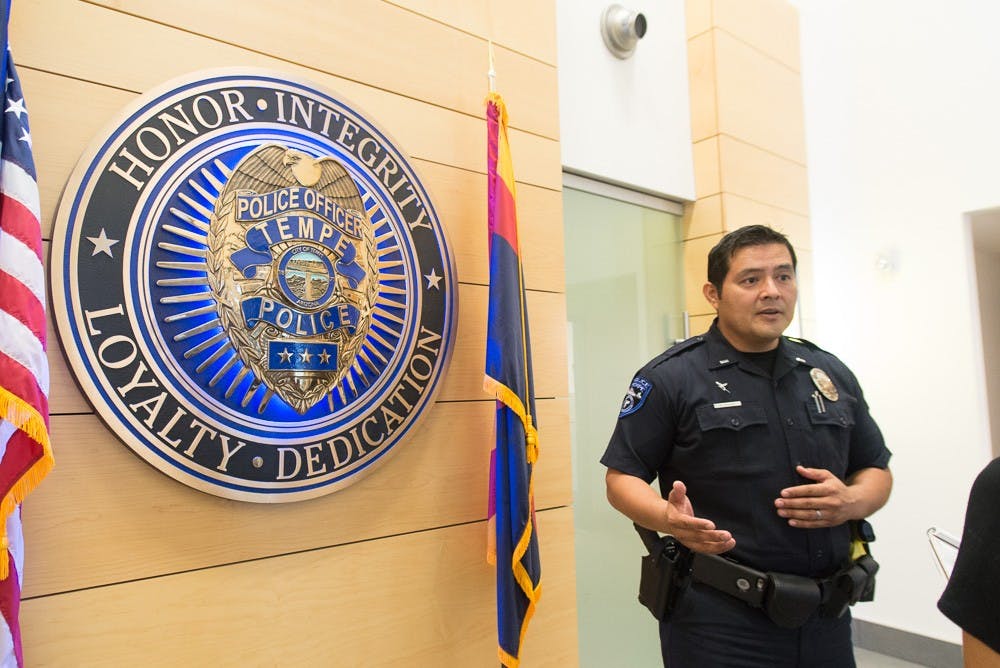While the staggering statistics about sexual violence on college campuses can be overwhelming, ASU students should know that options are available to take action against offenders and take preventative measures against sexual assault.
Kimberly Frick, program manager for the sexual violence prevention initiative at ASU, stresses that the student gets to choose the course of action they want to take.
“When someone experiences sexual assault they just have their power and control to get away from them,” Frick said. “So what we want to do is give that power back to the student.”
While the student gets to choose whichever process they wish to take, ASU has resources that make the decision easier.
“It’s important for students to know all of the different resources that are available and what options that they can take to get the support that they’re searching for,” Frick said.
One option is reporting the assault to the police, which is done by calling 9-1-1. The student will be connected to the ASU police department if they are on campus. If the student is elsewhere, they will be connected to the city’s police department.
According to Katy Harris, media relations specialist for ASU police department, an officer will respond to speak with the victim to establish what crime occurred. If the assault took place on campus, the ASU victim advocate will also respond to help the victim through the process.
If the student chooses to file a police report and move forward with the criminal justice system, the police can take them to get a forensic medical exam at a family advocacy center in and paid for by Maricopa County, if they choose to gather evidence.
The forensic medical exam consists of checking the patient’s health and collecting evidence. It is common for the patient to feel victimized again while receiving the exam, but forensic nurses are trained in making them feel as comfortable as possible.
Forensic exams have an expiration of about 72 hours following the assault. However, choosing to go through with an exam does not mean the victim has to file a report and proceed with the criminal justice system. Victims can get an exam and decide at a later time if that is what they want to do.
If the victim chooses to move forward with an investigation, the special victims unit will take over and interview all parties involved. The case will be forwarded to the County Attorney's Office for review of charges.
"The entire process is carried out at the victim's pace," Harris said. "The victim decides when she or he is ready to be interviewed."
Another option is to report the assault to the University, which is an administrative reporting process. The office of advocacy and assistance will reach out to the student and talk them through their options. The office of student rights and services would conduct an investigation.
Whether or not students wish to report their sexual assault, ASU offers a variety of ways students can get support. These support groups are also available to help students choose what they want if they need it.
ASU Counseling Services offers free services of support to sexual assault victims. They are available at all campuses by in-person appointments and by phone.
Sun Devil Support Network is group of trained, volunteer students who are available to offer peer support to victims.
Sexual Violence Awareness at ASU provides more information of reporting options, resources and support. They provide this flow chart to help students find the right choice for themselves.
Victims can choose to go to the police, the University, both or neither. While all of these options are available to everything, “it really depends on what that person wants in that moment,” Kat Hofland, sexual violence peer education coordinator, said.
“We encourage those who have experienced violence to reach out to whichever resources they see as being most beneficial to them."
Reach the reporter at gbachara@asu.edu or follow @aka_gabs on Twitter.
Like The State Press on Facebook and follow @statepress on Twitter.




